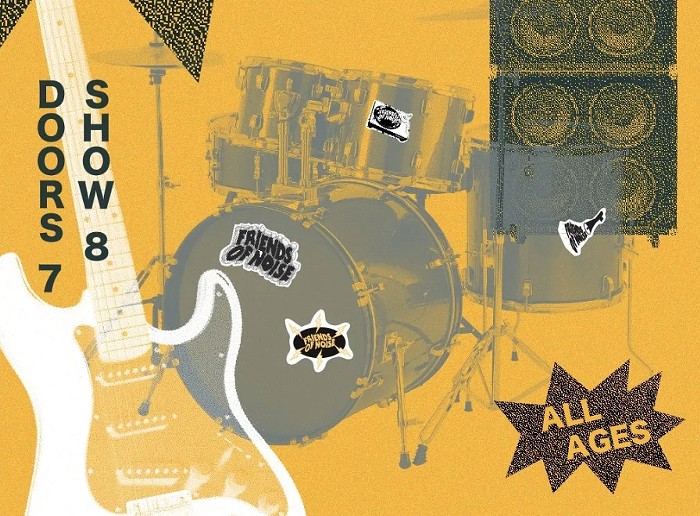ROCK MUSIC had found itself in another lull when Franz Ferdinand released its self-titled debut in 2004. Most of the "the" bands (Strokes, Hives, Vines, White Stripes) had all but run their courses, and these Glaswegians shimmied their way through to our shores with some of the best disco punk since Gang of Four.
Franz Ferdinand's latest album, Right Thoughts, Right Words, Right Action, picks up where their debut left off, forgoing the synthesizer and dub adventures found on You Could Have It So Much Better and Tonight and keeping wiry guitars up front. Right Thoughts includes a few surprises, too, including the dark and sexy "Stand on the Horizon," which morphs into an extended string-laden epic.
"If anything, the process for Right Thoughts, Right Words, Right Action resembled that of the first album more than the second and third," says bassist Bob Hardy. "When we were writing the first record, we all had day jobs, art school, or dole queues to occupy our time, and so the writing was done in short bursts a couple of songs at a time."
It's safe to say Franz Ferdinand helped spawn more than a handful of lesser dance-rock outfits, and in an odd twist, 2009's synth-and-beats heavy Tonight sounded like Franz were trying to keep up with the very bands they'd influenced. And yet there's no mistaking the playing or, especially, Alex Kapranos' biting, occasionally sexed-up lyrics. "Over the four albums, we have tried new things, bringing in more synths and electronica for certain songs," Hardy explains. "But the end result still always sounds like a Franz song. To my ears at least."
Of the four-year gaps between 2005's You Could Have It So Much Better, 2009's Tonight, and 2013's Right Thoughts, Hardy says a little more consideration goes into their approach to new material these days. In between albums, of course, Franz Ferdinand still lights up festivals all over the world, but it's important that members of the band get some time to themselves.
Hardy says that after 10 years, they must be doing something right. "Like any friendship or relationship, maintenance is required occasionally, especially when you live and work together as closely as we do while on tour or in the studio," he says. "Understanding when people need to be left alone is a key skill."



















